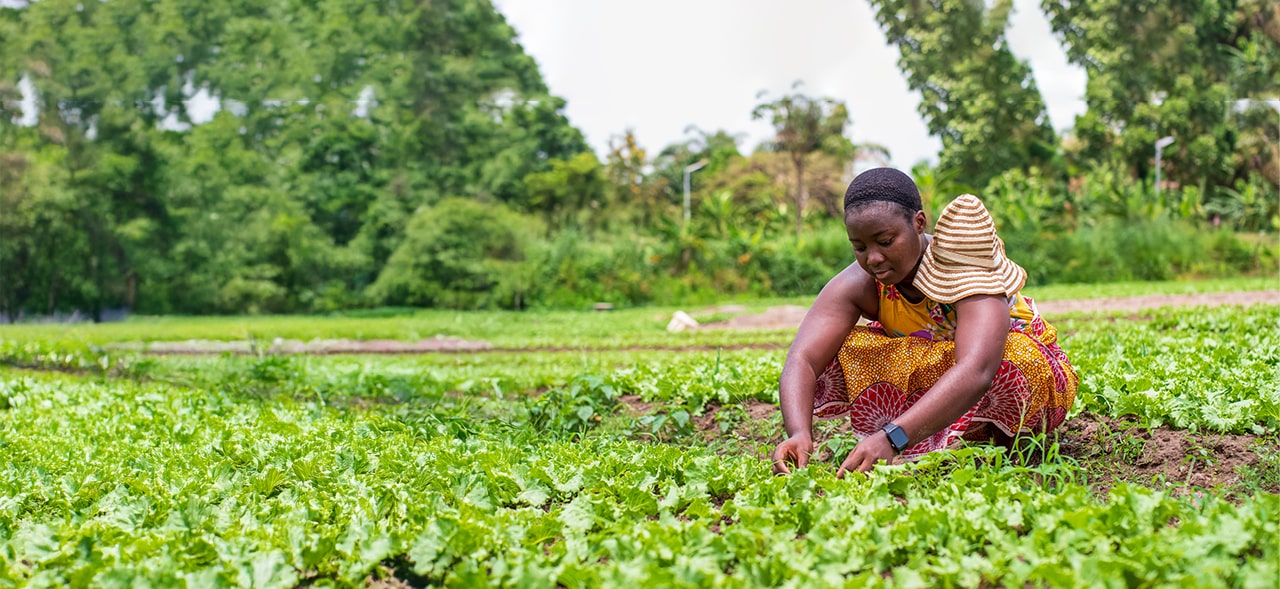
Despite the growing interest in agriculture among young people in Sub-Saharan Africa, youth continue to face systemic barriers to enter and thrive in agri-enterprise. These include fragmented value chains, limited access to finance, weak institutional support, and misaligned policies. Governments and development actors have lacked a structured, evidence-based framework to assess ecosystem gaps and guide targeted interventions for youth engagement in agriculture.
To bridge this gap, MSC developed a comprehensive youth-driven agri-enterprise ecosystem assessment and development framework. We conducted a training needs assessment, facilitated policy and institutional analysis, and built tools—including a value chain selection tool—to help stakeholders identify and prioritize youth-friendly interventions. We mapped key actors and opportunities in countries like Rwanda and Senegal and highlighted areas of over- and under-investment.
The framework has become a powerful diagnostic and planning tool for governments, donors, and ecosystem actors. It enables stakeholders to make data-driven decisions, align interventions, and deploy resources more effectively. In Rwanda and Senegal, the framework has already informed national programming and investment plans aimed at strengthening youth participation in agriculture—supporting inclusive economic growth and sustainable job creation.

Uganda’s youthful population—77% under the age of 30, many of whom are smallholder farmers—faces limited access to tailored financial products. Despite serving over 240,000 depositors and 32,500 loan clients, Opportunity Bank Uganda (OBUL) had limited offerings designed specifically for youth, particularly those in agriculture. OBUL sought to close this gap to align with its vision of becoming the bank of choice for all.
MSC conducted a training needs assessment and worked closely with OBUL to build internal capacity to serve the youth segment. Using the Market Insights for Innovation and Design (MI4ID) approach and qualitative research, MSC guided the development of a matched savings product and an agriculture-linked credit product. These solutions were designed to promote financial discipline and support income-generating activities among young farmers.
MSC also supported OBUL in developing a product roadmap and business case, and facilitated pilot testing, including mid- and end-term reviews. As of December 2021, OBUL had successfully integrated the new youth products into its operations. The pilot showed strong demand and repayment capacity among youth clients, validating the business case and demonstrating the potential for long-term portfolio growth.
This initiative enabled OBUL to attract a previously underserved yet high-potential market segment, enhance portfolio quality, and expand its outreach—contributing to youth financial inclusion and agricultural productivity in Uganda.
OBUL’s youth portfolio is now worth USD ….or reaches xxxxxx numbers
The project was funded and supported by Opportunity Bank Uganda (OBUL)
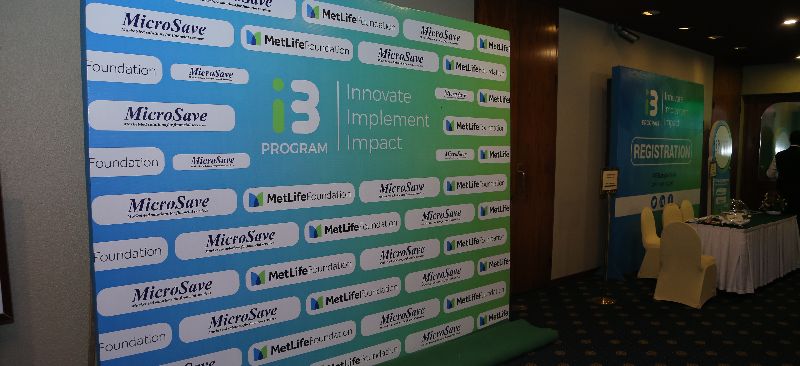
The Innovate, Implement, Impact (i3) Program makes use of technology for meaningful financial inclusion. Under this program, MSC works with implementation partners in both Bangladesh and Vietnam to optimize the design and delivery of products and services to meet the needs of low- and middle-income (LMI) clients.
MSC also works with FinTechs like technology-based start-ups, Mobile Financial Services (MFS) providers, and IT solution or platform providers. We facilitate partnerships with Financial Service Providers (FSPs), such as banks, microfinance institutions (MFIs), and cooperatives to enable large-scale outreach and provide the critical last-mile access.
The i3 Program will make a direct difference to at least 400,000 under-served LMI clients over a period of three years in both markets. It will improve the financial health by LMIs in two ways: by enabling access to formal financial services for new customers, or through deepening usage and extending a border range of services to existing customers. In addition, we expect that around five times more people will derive indirect benefits because of ripple effects from the interventions in these markets.
The i3 program impacted more than 21.5 million people from the LMI segment across Bangladesh and Vietnam.
Supported by MetLife Foundation, the program is also active in China and Malaysia. For more details visit the i3 Program website.
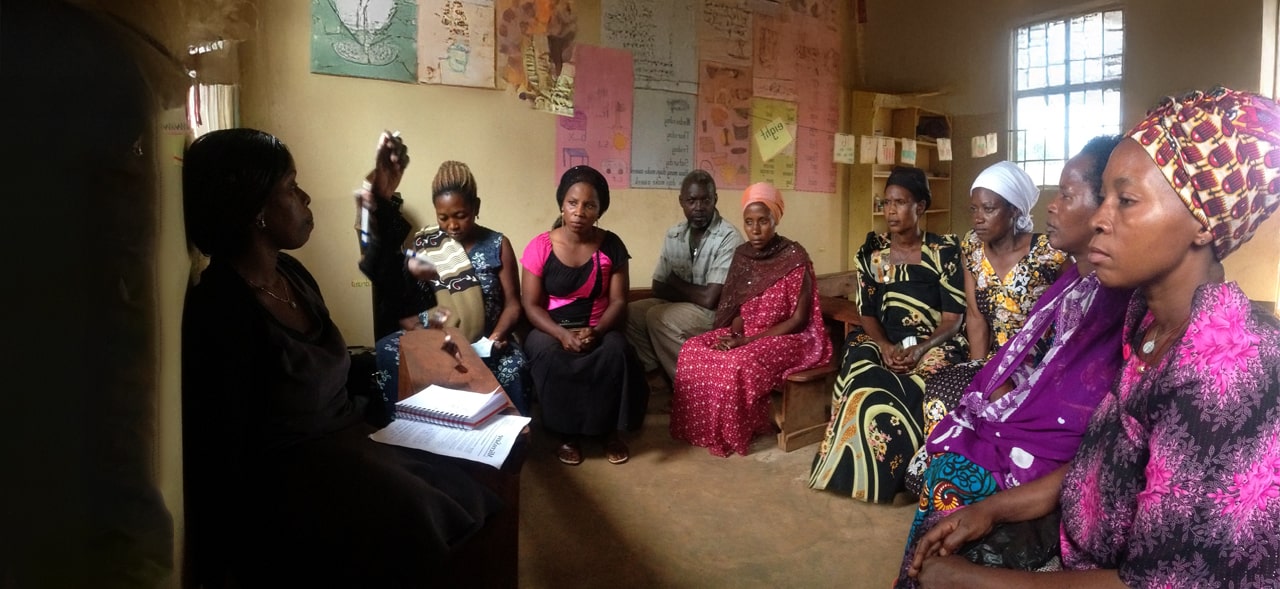
MSC was commissioned by Opportunity International to build the capacity of implementation of its partners in Africa to measure, analyze, and report social data.
We provided technical support to seven out of 10 OI partners in Ghana, Uganda, Malawi, Rwanda, Mozambique, and the DRC. Over two years, we helped them implement the SPM strategy of Opportunity International.
We customized the OI for African MFIs and developed a plan to adopt best practices in SPM as captured in the “social performance dashboard”. The dashboard drew heavily from the Universal Standards for Social Performance Management (USSPM). We built the capacity of the implementing partners of OI to collect, analyze, report, and use social data to make decisions and report results to the external stakeholders. We also supported other partners who did not officially participate in the program but worked towards best practices in SPM. Finally, we documented the project’s learnings with recommendations for the future.
Opportunity International Network commissioned the project.
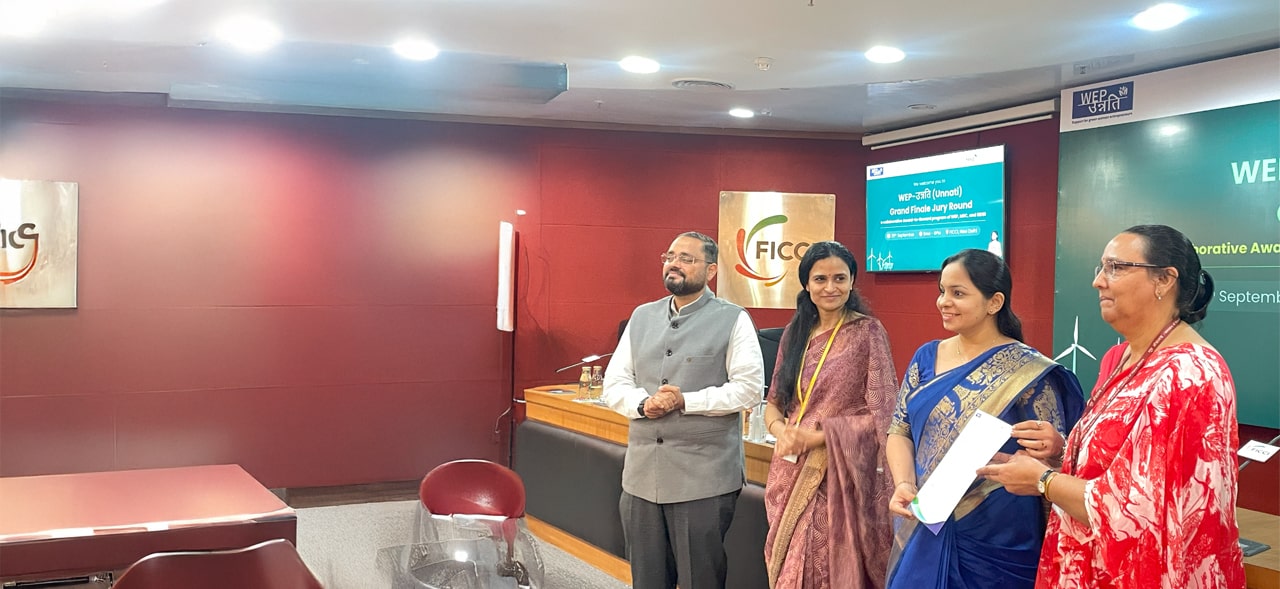
The Women Entrepreneurship Platform (WEP), launched by NITI Aayog in 2018, is India’s first public-private digital aggregator platform dedicated to advancing women’s entrepreneurship. Designed as a holistic ecosystem enabler, WEP addresses six core needs of women entrepreneurs—training, finance, market access, business development, mentorship, networking, and compliance.
Since 2022, MSC has been a key technical and strategic partner to WEP. In 2024, we were appointed as the Project Management Unit (PMU), responsible for overall program management, stakeholder coordination, evidence generation, and design of flagship initiatives. We also lead strategic planning across WEP’s five core pillars: capital, markets and networks, digital, outreach, and data and platforms.
Led by MSC, WEP has created the following impacts.
- Government collaboration: Onboarded five central ministries to WEP’s Steering Committee. Designed and implemented national programs with MoMSME (Yashasvini) that led to the formalization of 450,000+ women entrepreneurs, and with the Ministry of Skill Development (Swavalambini), to nurture future entrepreneurs among female students.
- Financing Women Collaborative (FWC): Co-chaired by MSC and WEP, FWC brought together 15 financial institutions. It assisted the disbursement of USD 12.62 million in loans to women and delivered financial literacy training to 32,428+ women. It also provided technical assistance to FIs in designing gender-intelligent loan products.
- Policy advocacy: MSC and WEP’s joint submission with TU CIBIL led to the RBI’s 2024 circular mandating SHG member-level credit reporting, which impacted over 80 million women by enabling the creation of individual credit histories.
- Evidence generation: MSC led multiple data-driven reports, including:
- From Borrowers to Builders: Women’s Role in India’s Financial Growth Story (2025)
- Women and Credit Report (2023)
- Mentorship for Women Entrepreneurs: A Highway to Growth (2023)
- Decoding Government Support to Women Entrepreneurs in India (2022)
- State-level impact: WEP deepened regional presence through state chapters in Telangana, Mizoram, and Goa, using local ecosystems to support women entrepreneurs.
- Enterprise acceleration: MSC anchored multiple Award to Reward (ATR) programs, including WEP Unnati, an accelerator for 15 women greenpreneurs across diverse sectors such as sustainable fashion, agro-waste, eco-tourism, and renewable energy.
- Digital Public Good (DPG) for Women: WEP evolved into a DPG offering scalable digital support assets like:
- ASK WEP – A peer-mentorship and real-time helpdesk
- WEP Cares – A wellness-focused initiative providing access to mental health experts
- Alternative credit scoring: With MSC’s technical assistance, MAVIM, a state-level women’s institution serving 1.8 million SHG members, created an alternative credit score and the expansion of enterprise financing.
The Gates Foundation commissioned the project.
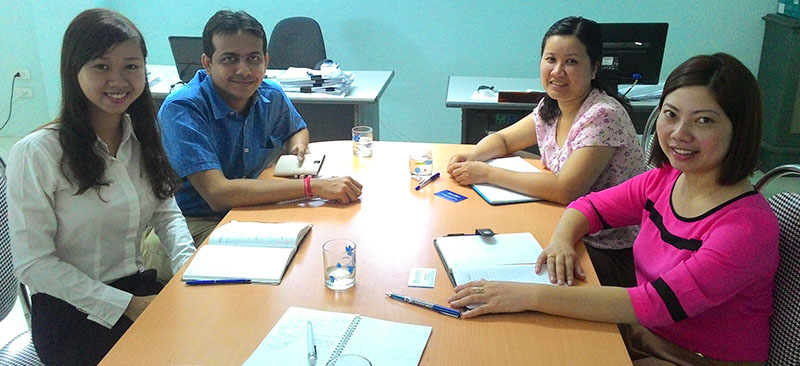
MSC supported Proximity Designs to transform Proximity Finance (PF), its microfinance program, into an independent, full-service financial institution. MSC guided PF through a comprehensive legal and institutional transformation and enabled its evolution from a credit-focused program into a regulated entity offering a broader suite of financial services, which includes savings and deposit products.
MSC led the development of a detailed transformation roadmap, which covered legal, institutional, and strategic dimensions. Our team conducted a regulatory review and provided expert guidance on key elements of the transformation process, including:
- The legal transformation (legal constitution and institutional form, ownership and shareholding structure, corporate governance, organizational structure, institutional development, and transformation)
- The strategic plan, which included the mission, vision, and competitive strategy
- Products and services
- Commercial or marketing strategy
- HR management
- Processes and systems
- Internal audit
- Risk management
- Accounting and financial management
- IT and MIS
- Funding strategy
IFC commissioned the project.





